We all have an inner child. It is a part of us that makes us what we are. This part of us can help explain why we react to our environment the way we do. Our inner child strongly affects our relationships, careers, and health. Why do I get offended by criticism? Why do I get angry so easily? There are moments when we don’t understand ourselves. A glimpse at our childhood and the discovery of our wounded inner child can help.
As you connect with your wounded inner child, you will slowly understand where your behavior patterns, weaknesses, and strengths come from. You will begin to understand and accept yourself better.
Healing your wounded inner child can be extremely enlightening, as you will discover your true, authentic self.
However, the path leading there is difficult. You might be facing emotional blockages that you have been holding in for many years. It is also possible that suppressed memories come back.
As a psychology student (and double Scorpio) I have always been fascinated by profound transformations. This is why shadow work and inner child work are my main topics on Spirithandbook. I really hope you enjoy this post about 14 signs you have a wounded inner child and 6 ways to heal!
Please note: This post may contain affiliate links that help me create free content for you! Thanks for your understanding!
What is the inner child theory?
The inner child is a therapeutic concept developed by John Bradshaw in the 1970s and 80s.
The inner child symbolizes all – to a certain extent subconscious – feelings, experiences, and memories from one’s own childhood.
Injuries, rejections, deprivation of love, and traumatization in childhood often lead to a wounded inner child.
We keep our inner child locked away to protect ourselves from disturbing memories. This causes people to lose their connection to their childhood feelings and memories.
The goal of therapeutic work with the inner child is to lovingly accept one’s own inner child and thereby regain access to childlike feelings such as joy, curiosity, and love of life.

How do I know if my inner child is wounded?
The suppressed, wounded, and rejected inner child manifests in adults through irrational, exaggerated reactions, self-injurious behavior, damaged self-esteem and profound insecurity, proneness to addictions, or an excessive striving for recognition and attention. Generalized anxiety disorders can also be explained by the rejected inner child, according to Bradshaw.
If you find yourself in the following 14 signs of a wounded inner child, you should think about inner child work:
1. You are afraid of abandonment
Having this kind of fear can manifest itself as clinginess, co-dependency, excessive insecurity, jealousy, and in some cases as depression and anxiety.
You constantly fear abandonment, which severely affects your relationships with other people.
2. You have a profound feeling that something is wrong with you
You have deep-rooted beliefs from your childhood that there is something wrong with you and that you are different from everyone else.
3. You try to impress others with your achievements
You have a tremendous urge to impress others with your outstanding achievements or even to show off.
Inside you, your wounded inner child wants recognition and admiration and tries to get these by any means possible.
4. You have never felt a bond to one or both of your parents
Often a wounded inner child originates from the lack of a deep, loving, and secure bond with one or both parents.
5. You have difficulties saying no
You try to please everyone, like a little child who wants to please their parents and longs for their appreciation.
That’s why it’s hard for you to say no, even when you really want to.
6. You get hurt easily by criticism
You might perceive criticism as more personal and hurtful than it probably is, due to low self-esteem.
7. You always try to please people
No matter how much you don’t actually want it, you subordinate yourself to other people.
It is difficult for you to express your own opinion and to defend it.
Also, you seek constant affirmation and you are afraid to oppose others.
8. You avoid conflicts
In psychology, there are 3 types of conflict avoidance.
Either you swallow your feelings and smile, even though the present situation is causing you stress and pain.
Or you are someone who changes the subject so that it corresponds with the opinion of the other person.
There are also conflict avoiders who physically avoid the confrontation.
9. You are extremely self-critical
You are exceedingly self-critical of yourself and probably your own biggest critic.
10. You experience intense anxiety when you do something new
Since people are creatures of habit, it is normal that one might not feel completely comfortable doing something new.
In our case, however, the fear is so great that new experiences are completely avoided.
Because of your lack of confidence in yourself, it is sometimes tough for you to do something new.
The lack of stepping out of the comfort zone, in turn, has an impact on your self-image as the following quote shows.
Trying new things is good for our psychological health because overcoming the challenge of stepping out of our comfort zone builds our self-confidence and self-esteem. As children, we bravely embrace new experiences and seek them out. As adults, it’s harder to break out of our comfort zone, but so worth it because our inner child is stimulated and delighted by seeing, feeling, thinking and experiencing new things.
Karen Anne Hope Andrews, a clinical psychologist
11. You find it embarrassing to express strong emotions
You find it embarrassing to express anger or sadness in front of others. That’s why you often hold back your tears and pretend that everything is okay.
Then when you are alone your emotions suddenly burst out of you.
Let’s look at an example of feeling embarrassed for showing strong emotions I found on Quora:
My father was very stoic, and I never heard my parents argue or saw them cry. Somewhere along the way, I was given the impression that showing one’s emotions is a sign of weakness. It makes it doubly mortifying that I cry when I’m furious or if someone seriously hurts my feelings, and I can’t prevent it happening or stop it at will no matter who is around. I try to find a place to hide until it’s run it’s course. It’s also a control issue for me. I’m a very private person and hate for anyone to see me vulnerable and out of control.
Michelle Fisher on Quora
12. You have difficulties building trust
It is extremely difficult for you to really trust people and to open up to them.
This also leads to the tendency to have rather few friendships and to struggle to make new friends or to establish deep, lasting love relationships.
13. You tend to develop addictions
People with a wounded inner child tend to develop addictions to numb their minds and feelings.
14. You are shy and avoid people
You tend to feel inferior and shy when you are in social situations. The wounded inner child in you maybe tries so hard to hide itself out of fear of even more rejection or dismissal.
6 ways to start healing your wounded inner child
Inner child work can bring fantastic changes in your life, but it is also extremely difficult, as it requires a lot of emotional work.
Before you start with inner child work, however, you should definitely consider asking a psychologist or psychotherapist for help.
1. Recognize your inner child
To begin your healing journey you first have to acknowledge and be open to exploring your wounded inner child.

Imagine yourself as a young child. Reflect on critical moments of your childhood. These can be beautiful moments, as well as moments that are associated with less positive emotions.
We probably carry the emotional baggage of such experiences around with us until today.
Try to understand and accept that your wounded inner child stems from painful events of your childhood and influences your present life to a certain extent.
If the thought of working through your past scares you and makes you feel inhibited, then it will probably be more challenging for your healing journey to progress.
In this case you should consider consulting a psychologist or psychotherapist for help.
2. Pay attention to the feelings of your inner child
Now that you are open to a relationship with your wounded inner child, try to pay attention to its feelings.
Which situations lead to which feelings?
Are there specific situations in which you feel:
- anxiety,
- insecurity,
- shame,
- guilt,
- anger,
- sadness,
- and rejection?
Try to understand the parallels between the present and the past.
For example, the constant absence of parents or abandonment by them may cause the grown-up to experience a fear of attachment and dependency in romantic relationships.
3. Write a letter to your inner child
Write a letter to your wounded inner child from the perspective of a loving person. Express how much your inner child gets loved.
Also, communicate that it gets appreciated, understood, and cared for.
This is the letter your younger self needs to hear and it can contribute a great part to healing your relationship with your past.
Take this letter as an example:
Dear little inner child,
The first thing I have to say: You are safe, you are loved, you are okay.
I am so happy you are here. I know you have been through a lot and have lost trust in your fellow people and even in yourself.
You were not seen for a long time.
For a long time, you had to prove yourself all alone, protect yourself and stand up for yourself. I thank you from the bottom of my heart for being so strong.
That’s all over now.
You are here with me now. I will protect you and not let anything happen to you.
I will slowly teach you again, – or for the first time, what love and what trust means – what it means to have an anchor that you can always hold on to, no matter how strong the tide gets.
I will show you what a wonderful and lovable person you are and I will help you to accept yourself. Every time you feel anger, jealousy, or disappointment I will guide you to heal yourself.
You are incredibly beautiful in so many different ways.
You truly deserve the best life on earth. You deserve to be happy and to have a smile on your face every day.
Every step you take, I will do it with you as if I were your shadow.
It is your time to step out of the darkness.
You belong in the light.
I love you.
4. Journal from the perspective of your wounded inner child
Then you can write a letter from the perspective of your wounded inner child.
For example, it might respond to a letter from a loved one, creating a dialogue. Maybe your inner child also writes about the experiences they have made and the feelings they have felt.
Over time, this dialogue can reveal many hidden emotions and critical points of your past.
5. Do an inner child meditation
Visualization meditation can help you to visualize or “visit” your inner child.
Visualization meditation has many positive effects on our health: reduction of depression and anxiety symptoms and pain, improved ability to cope with stress, better sleep and emotional well-being.
5.1 How to do visualization meditation
First, find a comfortable, restful position and close your eyes.
Focus on your breath for a few seconds, breathing in and out slowly until you find a steady and relaxed rhythm.
Imagine your inner child to whom you want to show compassion.
Picture them clearly and keep the image in your mind.
Think of how you feel about your inner child. You might experience feelings of profound love, but also feelings of contempt. Perhaps you simply feel neutral feelings for your inner child.
Imagine challenges or pain that your inner child has faced in their life.
Now concentrate on the feelings you want to release to your wounded inner child – peace, safety, love, appreciation, healing, or happiness.
Imagine these feelings as a shining golden, green, or violet light in your heart. Transfer this energy from your heart to the heart of your inner child.
You can also use healing mantras such as “May your pain fade and your inner light begin to shine” and transmit them to your inner child.
Continue to send healing energy and mantras to your inner child as you calmly breathe in and out.
Keep going until you feel that your inner child is a little closer to being healed.
6. Use healing affirmations
You can use healing affirmations daily to reprogram your mindset and embrace your wounded inner child more and more.
While reading you will notice how these affirmations work and how your inner child responds to them.
Make sure you truly feel the affirmations and relate them to your inner child.
- I love you just the way you are
- It’s totally okay to be scared sometimes
- You came into this world to achieve great things
- I am so proud of you
- I will protect you forever
- I hear you and I love you
- You can be exactly the way you want to be
- You are free to express your feelings and thoughts the way you want to
- You are very special to me
- You have every right to express your opinion
- You have wonderful talents with which you enrich the world
- You can reveal your true self and don’t have to hide it anymore
- You are safe and protected
- You have nothing to prove
My Top Books For Inner Child Work:
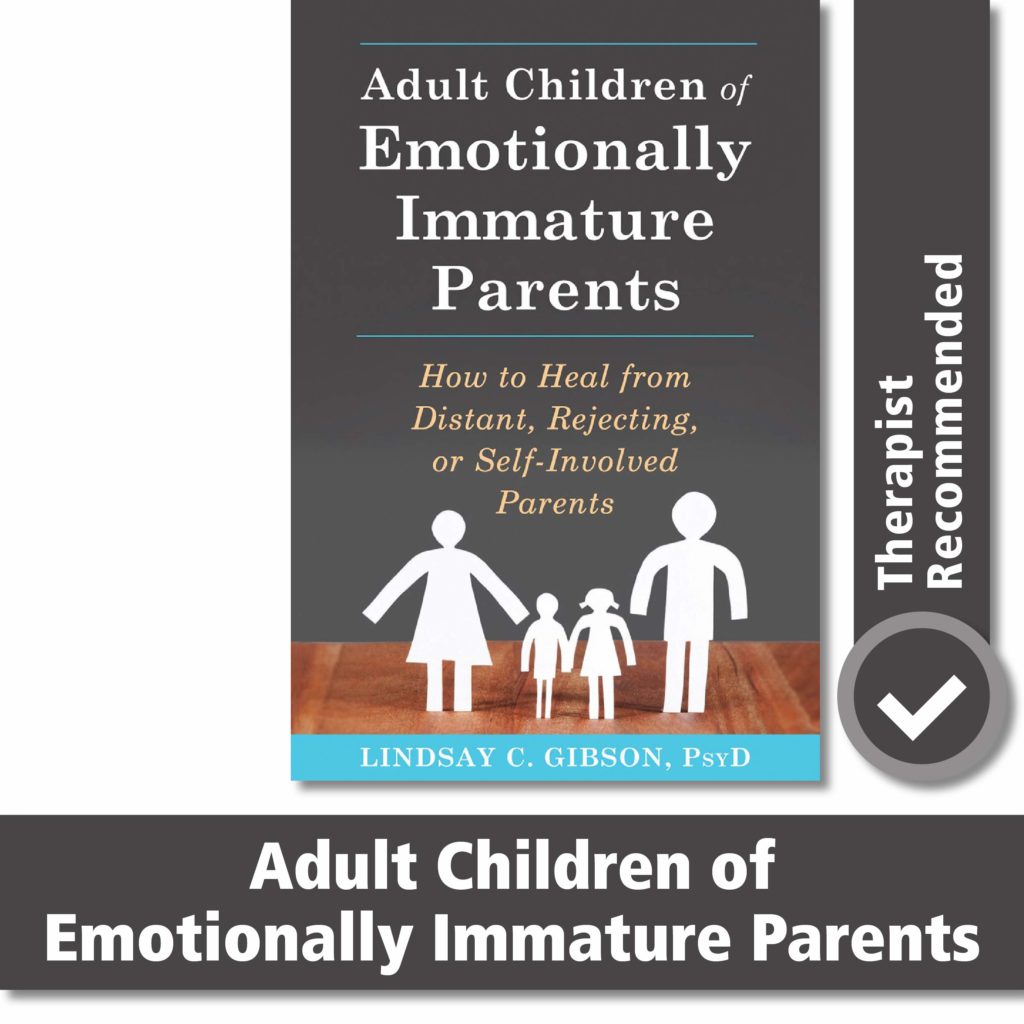
If you liked this post, please follow me on Pinterest for more spiritual and personal growth content!
https://www.pinterest.de/spirithandbook/You Might Also Love
My readers support Spirithandbook. When you buy through links on my site, I may earn some coffee ☕ money (which I promise to drink while continuing to support your spiritual journey ✨).


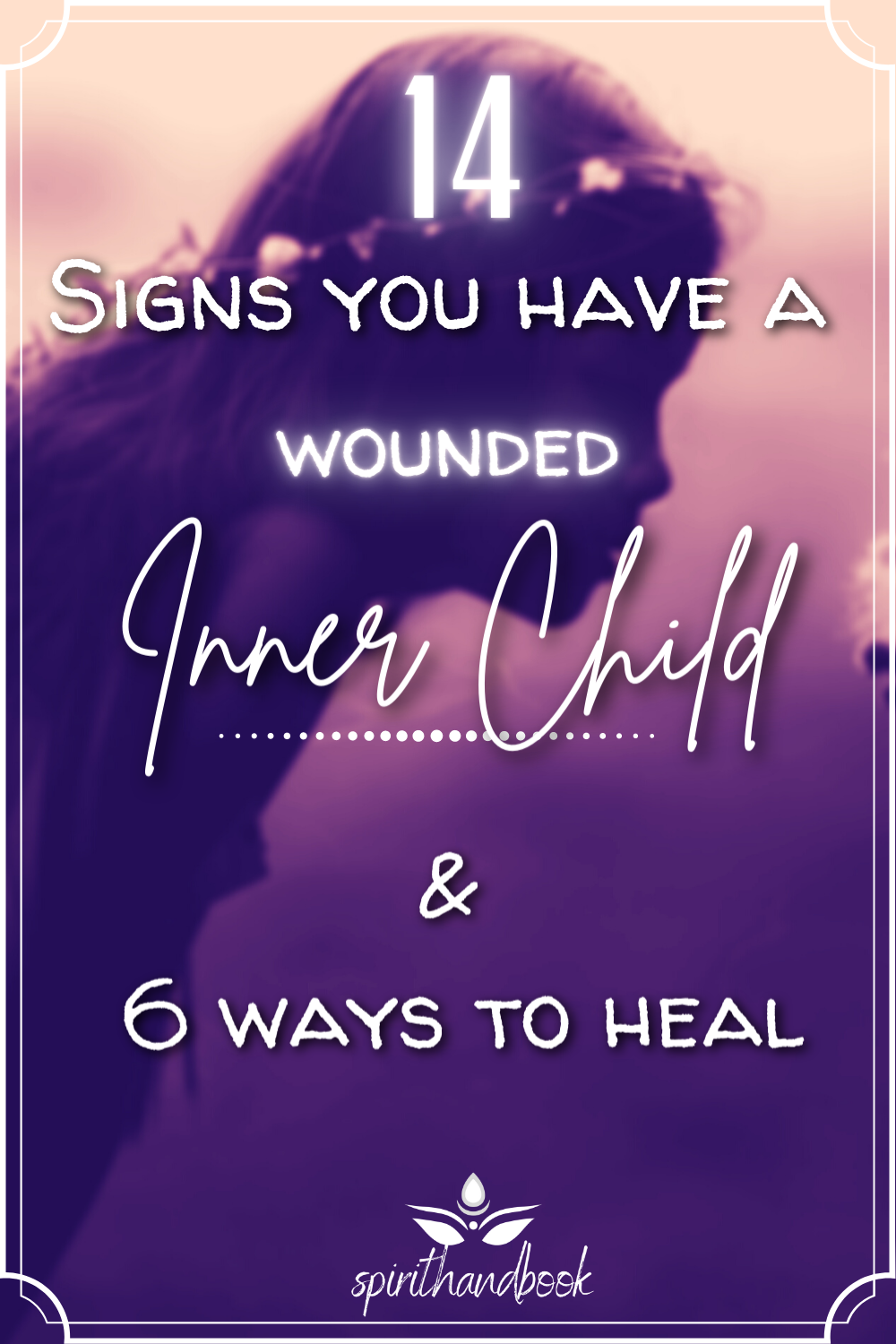
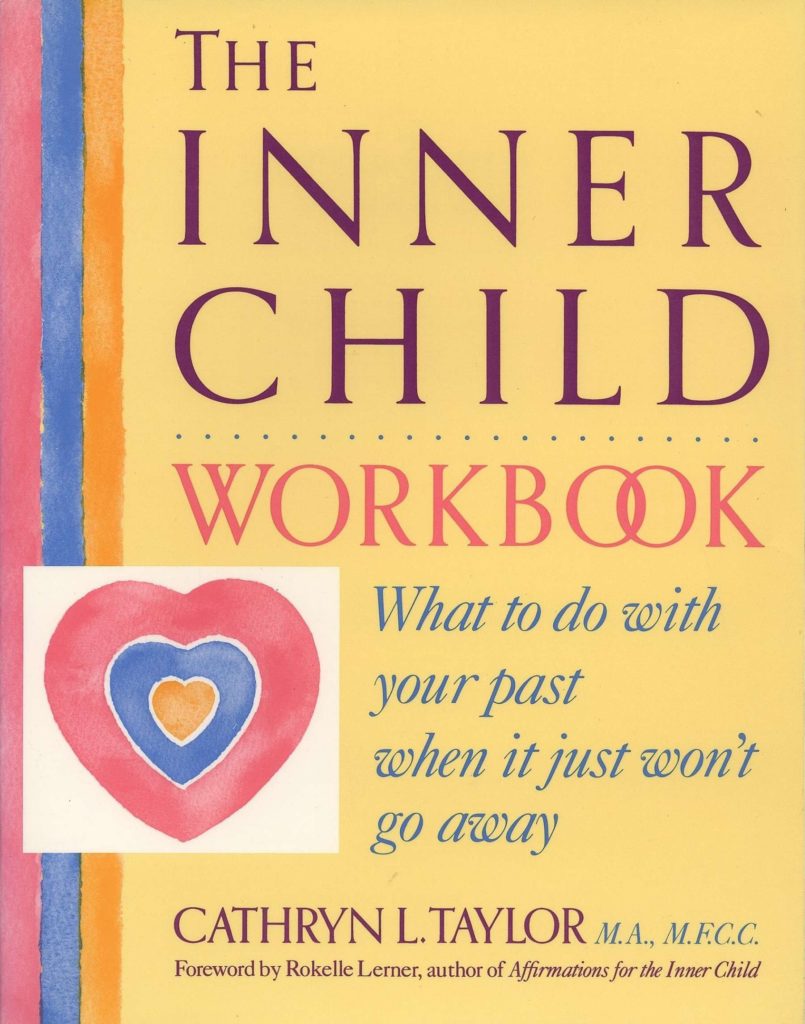
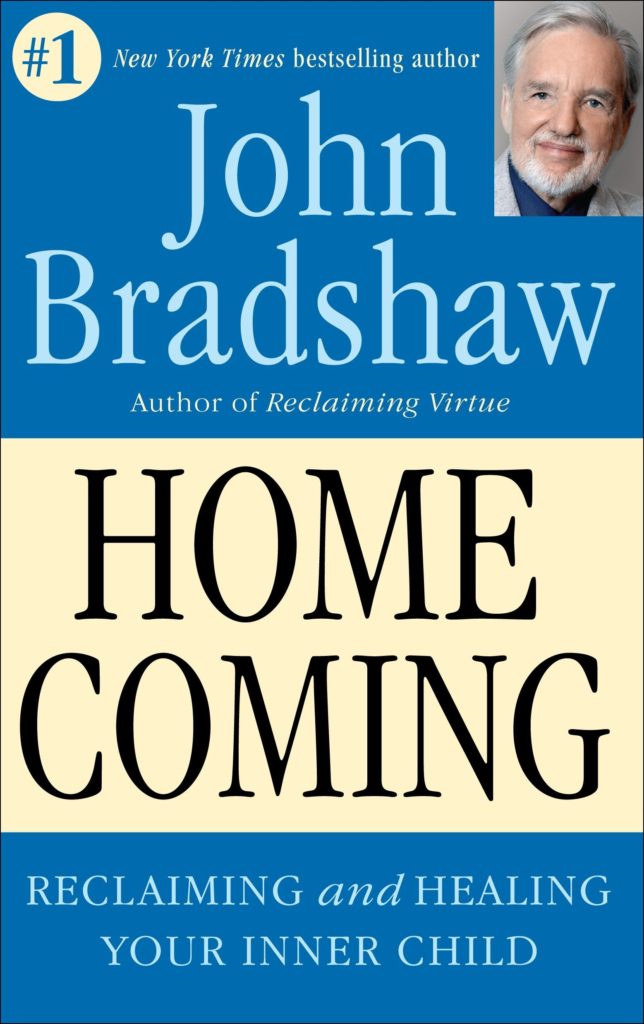
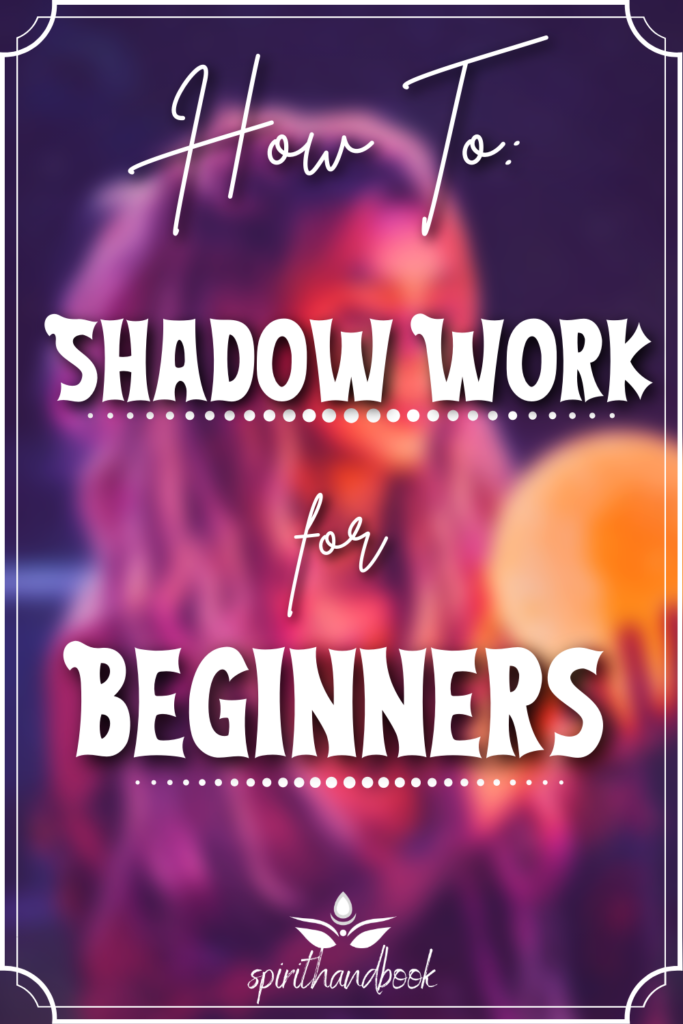
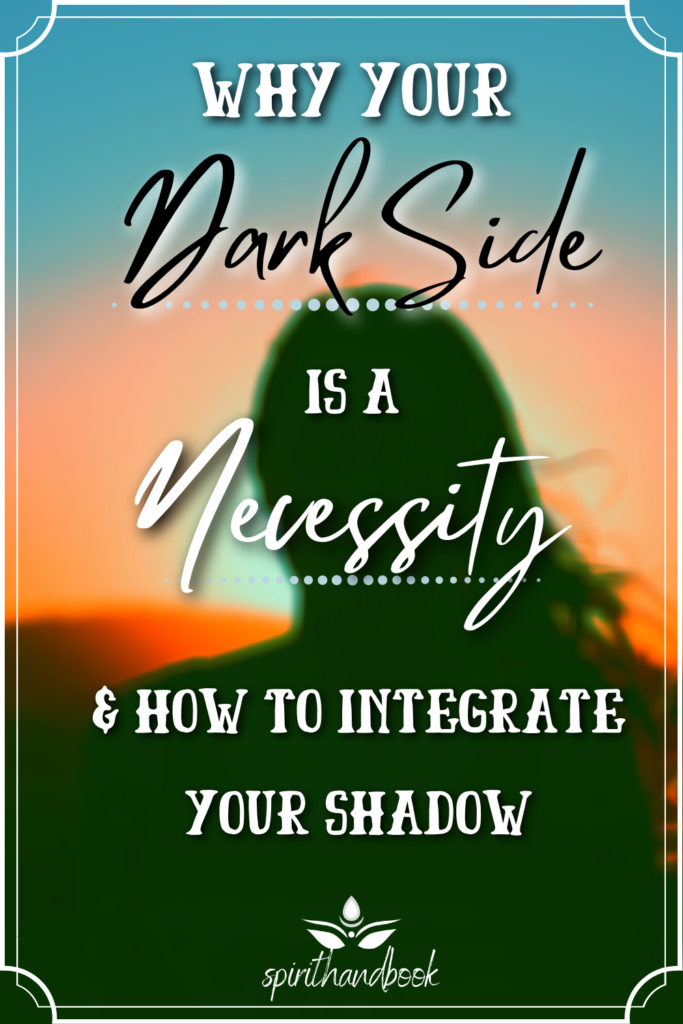


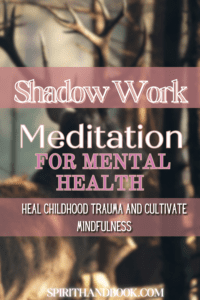

Pingback: - LifesSherpa